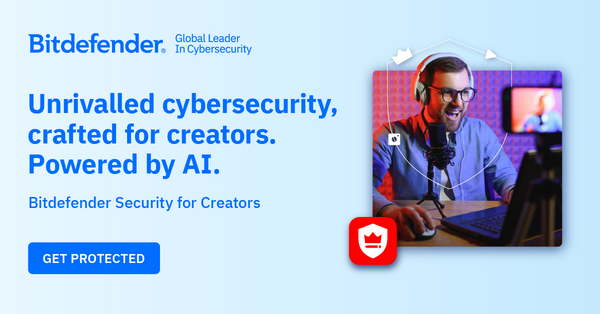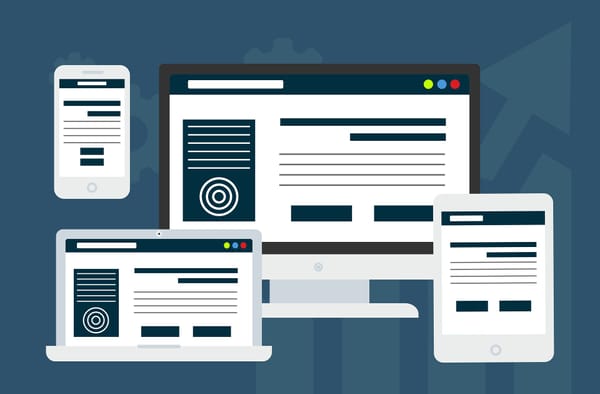How to Protect Your Social Media Accounts from Hackers

Social media has become an essential part of modern life, with billions of users worldwide. In fact, a detailed analysis by the team at Kepios shows that, as of July 2024, there were 5.17 billion social media users worldwide, or 63.7% of the global population.
In the past year alone, 282 million new users have joined social media platforms, growing at an annualized rate of 5.8%. With an average of 8.9 new users every second, this rapid expansion makes social media a prime target for hackers.
Whether you're a content creator or a casual user, falling victim to social media hacking can result in stolen personal data, financial loss, and a damaged reputation. In this guide, we'll explore the most effective ways to protect your social media accounts from hackers.
Before we delve into the main subject, let’s look at some popular social media heists and data breaches and leaks:
- The Twitter Hack of 2020: In a coordinated social engineering attack, high-profile accounts like those of Elon Musk and Barack Obama were hacked. Hackers posted a Bitcoin scam, asking followers to send cryptocurrency, and raked in over $100,000 before they were stopped.
- Facebook Data Scraping in 2021: In another major data leak, 533 million Facebook user records were scraped and leaked online. This data, which included phone numbers, emails, and birthdates, made users vulnerable to phishing, identity theft, and more.
- LinkedIn Breach of 2021: 500 million LinkedIn records were put up for sale, with personal details scraped from user profiles being circulated on a hacking forum, further highlighting how professional networks are also prime targets.
Bitdefender Labs also reported on scam campaigns that used high-profile YouTube accounts hijacked or taken over by threat actors to promote cryptocurrency scams. These attacks often impersonate public figures such as Elon Musk, with fake giveaways promising to double viewers' crypto investments. Hackers typically gain access through phishing attacks that steal session tokens, bypassing even two-factor authentication. Once they have gained control of an account, hackers delete original content and use deceptive live streams with altered handles, thumbnails, and titles to lure in viewers, which can inflict serious financial losses on both users and content creators.
Read more about the topic here:
A Deep Dive into Stream-Jacking Attacks on YouTube and Why They're So Popular
Stream-Jacking 2.0: Deep fakes power account takeovers on YouTube to maximize crypto-doubling scams
Why Do Hackers Target Social Media Platforms?
Hackers increasingly target social media platforms because they hold troves of valuable information that enable identity theft crimes and can be used to disseminate scams or spread misinformation.
Here’s a breakdown of some of the key reasons hackers might go after social media accounts:
- Personal Data: Social media profiles contain personal details like birthdates, email addresses, phone numbers, and even location data that can be used for identity theft or phishing attacks, or it can be sold on the dark web.
- Financial Gain: Many social media users, especially influencers and content creators, monetize their accounts. Hacking a monetized account lets attackers steal funds, reroute ad revenue, or hold the account for ransom.
- Spreading Malware and Scams: Compromised accounts can be used to send malicious links to followers and disseminate scams. Followers are more likely to click on links from a trusted and well-known source, adding to hackers' reach.
- To Gain Access to Other Accounts: Social media accounts are often linked to other online services, such as email accounts or financial services. Once a hacker compromises one account, they can gain access to other accounts through password resets or stored login information.
- Reputation Damage and Blackmail: Hackers can steal private messages or embarrassing information from a user's account, which they can use to extort the victim into paying a ransom.
- Botnet Recruitment: Some hackers compromise social media accounts to turn them into bots, which are used to amplify disinformation, spread spam, or engage in distributed denial-of-service (DDoS) attacks.
Common Hacking Methods Used Against Social Media Accounts
To effectively protect your accounts, you need to understand the methods hackers use to breach them. Here are the most common techniques:
1. Phishing Attacks
Phishing is a tactic where hackers send fraudulent messages or emails pretending to be a trusted source. They trick you into providing login credentials or clicking a malicious link that compromises your account. Phishing attacks often target influencers by mimicking brands, sponsorship deals, or even platform notifications.
You can read more about phishing and other social engineering tactics in these dedicated articles:
Phishing Scams: How to Identify and Avoid Them
Bait and Switch: Unmasking the Allure of Phishing Scams
Email Scams: How to Spot, Avoid and Report Them
2. Credential Stuffing
This method involves using stolen login credentials (from data breaches or leaks) to gain access to your social media accounts. Social media aficionados who reuse passwords across different sites are at particular risk of this type of attack.
Related: What Is Account Takeover (ATO) And How to Protect Against It
3. Brute-Force Attacks
Hackers use automated tools to try thousands of different password combinations until they guess the password for your account. Weak or common passwords make you an easy target for brute-force attacks.
4. Malware and Keyloggers
Malware can be installed on your device through malicious downloads, email attachments or drive-by downloads. Once installed, malware such as Remote Access Trojans can track your keystrokes, allowing hackers to steal your passwords and access your accounts.
5. Session Hijacking
If you’re using public or unsecured Wi-Fi, hackers can hijack your session to gain access to your social media accounts. By intercepting the data exchanged between your device and the network, hackers can take over your session without needing your login credentials.
How to Protect Your Social Media Accounts from Hackers
1. Use Strong, Unique Passwords
The first line of defense against hackers and account takeovers is a strong, unique password with each account. Avoid using like birthdays, common phrases, or words that can easily be guessed. Instead, opt for long, randomized combinations of letters, numbers, and symbols.
Tip: A password manager, like the one offered by Bitdefender, can help generate and store complex passwords securely.
2. Enable Two-Factor Authentication (2FA)
Two-factor authentication adds an extra layer of security to your account by requiring you to verify your identity via a secondary method—typically a code sent to your phone—after entering your password. This makes it much harder for hackers to access your account even if they somehow get their hands on your login information (email address and password combo).
3. Monitor Your Account Activity
Regularly review your social media account activity to spot unusual behavior. Most platforms, like Facebook and Instagram, provide an activity log that shows the devices and locations where your account has been accessed.
Whenever you see suspicious logins, immediately change your password, log out of all devices, and enable 2FA if it’s not already active.
4. Be Cautious of Phishing Scams
Always double-check the sender before clicking on links in emails or messages. Avoid downloading attachments from unknown senders or clicking on suspicious links.
Tip: Hover over links to see the actual URL before clicking, and if you’re unsure, go directly to the website in question rather than using the link.
Read more about Phishing Scams in this dedicated article: Phishing Scams: How to Identify and Avoid Them
5. Keep Your Software Updated
Outdated software can harbor vulnerabilities that hackers exploit. Regularly update your operating system, browser, and apps to ensure that security patches are applied.
6. Use a VPN When on Public Wi-Fi
Public Wi-Fi networks are notorious for risk, making it easy for hackers to intercept your data. Use a VPN to encrypt your internet connection and protect your data from being stolen while using public networks.
Tip: Bitdefender’s VPN service offers secure, encrypted connections that keep your online activity safe from prying eyes.
7. Limit Third-Party App Access
Many social media platforms allow you to log in to third-party apps. However, every app you let access your social media accounts increases your exposure to hackers. Regularly audit the apps that have access to your account and revoke unnecessary permissions.
Protecting Your YouTube Account with Bitdefender Security for Creators
For YouTube creators, securing your account is critical as your channel is often a major source of revenue and reputation. Bitdefender Security for Creators provides several key features to help you keep your account safe from hackers:
1. Advanced Malware Protection
Bitdefender’s threat detection system identifies and blocks malware that hackers use to take over your account or steal sensitive information. This helps keep your YouTube account and other connected accounts secure.
2. Phishing Protection
Bitdefender automatically blocks phishing attempts, ensuring that you don’t fall for fraudulent emails or links that could compromise your YouTube account.
3. Account Takeover Alerts
If any unusual activity or attempts to take over your account are detected, the service will immediately send you alerts. This allows you to take quick action, such as changing your password or logging out suspicious users.
4. Multi-Device Security
If you access your YouTube account from multiple devices, we’ve got you covered. Bitdefender offers multi-device protection so that all your devices—laptops, tablets and phones—are secure from hackers.
5. VPN for Secure Connections
Bitdefender’s VPN encrypts your internet connection, preventing hackers from stealing sensitive data when you’re on public Wi-Fi or other insecure networks. This is especially useful for YouTube creators, who often work from different locations.
FAQs
1. Why do hackers target social media accounts?
Social media accounts are targeted because they hold personal data, can be used for scams, and generate revenue for influencers. Hackers can exploit large followings or steal private information to resell or misuse.
2. What is the best way to protect my social media accounts from hackers?
Use strong and unique passwords, enable two-factor authentication (2FA), regularly monitor account activity, and keep your software updated. Tools like Bitdefender Security for Creators provide additional security features.
3. How does phishing work, and how can I avoid it?
Phishing involves tricking you into clicking on malicious links or giving away personal information via fake emails, messages, or phone calls. To avoid phishing, be cautious with links and emails, manually type out URLs when in doubt, and use comprehensive security solutions with anti-phishing and anti-fraud detection mechanisms.
4. What should I do if I notice suspicious activity on my account?
Immediately change your password, enable 2FA, log out from all devices, and review your recent activity log. If the issue persists, contact the platform’s support team for further assistance.
5. How does Bitdefender protect my YouTube account from hackers?
Bitdefender provides malware protection, phishing prevention, and account takeover alerts. It also offers multi-device protection, a password manager, and a VPN for secure internet browsing, making it ideal for YouTube content creators.
Hackers constantly find new ways to target accounts, but by following the steps outlined above and using a security tool like Bitdefender Security for Creators, you can protect your accounts from malicious attacks. Stay proactive in securing your accounts with strong passwords, two-factor authentication, phishing protection, and reliable security software to keep hackers at bay.
tags
Author
Alina is a history buff passionate about cybersecurity and anything sci-fi, advocating Bitdefender technologies and solutions. She spends most of her time between her two feline friends and traveling.
View all postsRight now Top posts
What Key Cyberthreats Do Small Businesses Face?
September 06, 2024
Got a Strange Text? 5 Signs That You’re Being Scammed (and How to Protect Yourself)
September 02, 2024
Scam Alert: How Fraudsters Are Exploiting WhatsApp Group Chats and What You Need to Know to Stay Safe
August 13, 2024
Half of Travel-Themed Spam Messages Worldwide Are Scams, Bitdefender Antispam Lab Warns
July 25, 2024
FOLLOW US ON SOCIAL MEDIA
You might also like
Bookmarks







